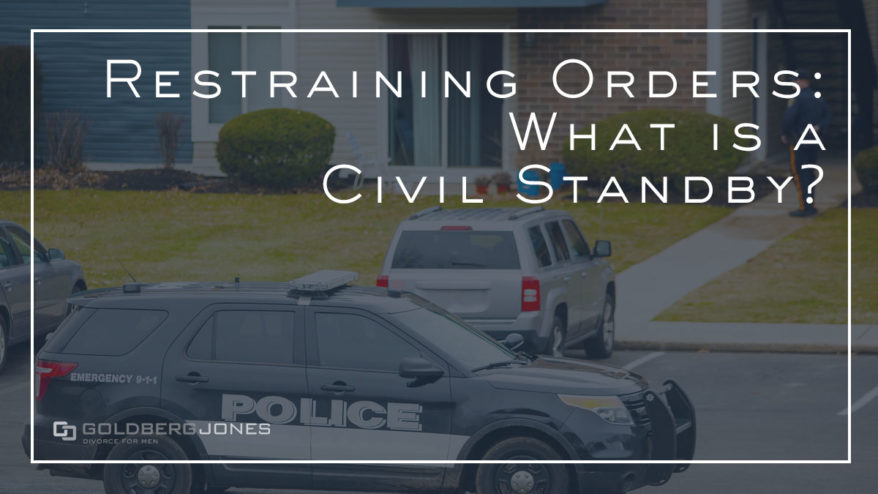It’s no secret that divorces often become contentious. Conflict forms a big part of the proceedings. Depending on the circumstances, many involve the use of restraining orders. These court orders can be useful tools to protect people and assets. When discussing restraining orders, it’s also often useful to talk about civil standby orders.
Restraining orders cover a variety of areas. Most notably, the courts use them to protect one a person’s safety and well-being. During divorce proceedings, people commonly use them to prevent an ex from taking money from joint accounts, retirement savings, or running up debt.
Courts also often employ them to control the behavior of one or both spouses. For example, a restraining order may bar your ex from contacting you or coming to your home.
This is where civil standbys come into play.
What is a Civil Standby?
Simply put, a civil standby gives the person affected by the restraining order the opportunity to collect personal effects without violating the court order.
If you’re barred from home, this affords you the chance to gather clothes and other belongings without fear of legal action or arrest.
Regardless if you’re the petitioner on a restraining order or the respondent, it’s important to understand how a civil standby works. Especially their limitations.
Related Reading: Can Mental Illness Impact Divorce and Custody?
How Does A Civil Standby Work?
In Oregon, you request a civil standby through your local police department.
Officers are dispatched to meet the person restricted by the restraining order at a neutral location. They then brief the respondent and accompany this person to the place in question. This person then has a maximum of 20 minutes to collect their belongings.
If there is a dispute, the item in question remains at the property. The respondent then must take further legal action to establish ownership.
Related Reading: What are the Grounds for Divorce in Oregon?
How Are the Police Involved?
This last point is especially important as it illustrates one of the key limitations of a civil standby. There are specific things a police officer will and will not do in this process.
 Key among these is that officers will not step in to settle any disputes over who owns an item. Think of the officers as chaperones there to make sure everyone stays safe and plays by the rules.
Key among these is that officers will not step in to settle any disputes over who owns an item. Think of the officers as chaperones there to make sure everyone stays safe and plays by the rules.
- They accompany one party and supervise the removal of undisputed essential property. That is all.
- They won’t get involved in such quarrels. You and your ex must figure that out on your own.
- If there is a disagreement about ownership, you must settle that at a later date. In this situation, you likely want to talk with your divorce attorney. You may have to pursue an enforceable court order to collect items in dispute.
- If the time exceeds 20 minutes and the respondent refuses to leave or becomes uncooperative, they can be then arrested for violating the restraining order.
- A civil standby does not guarantee access to the property.
- The police can’t require the petitioner of the original order to grant entry.
- Police are present to ensure no crime is committed and no injury is incurred, that’s all.
In cases where restraining orders come into play, a civil standby can be a useful tool. Especially from a practical standpoint, as it can gain you access to items you need that may have been left behind. That said, it’s important to know what they can and can’t do, whichever side you find yourself on.
Related Reading: Writs of Assistance, Divorce, and Child Custody: What to Know

Comments 1
This was a really informative post! I had heard of civil standbys before but didn’t understand the specifics until now. It’s great to know how they work in Oregon and the circumstances under which they are used. Thanks for breaking it down so clearly!